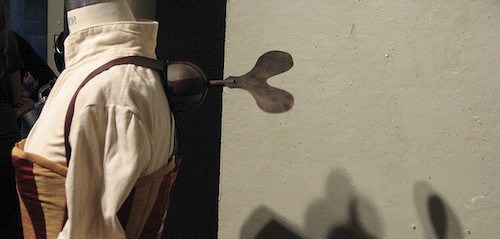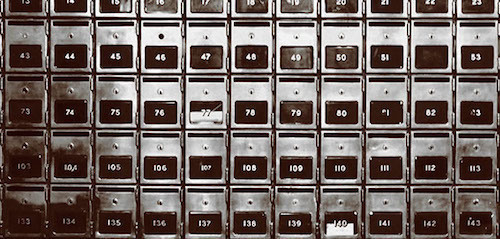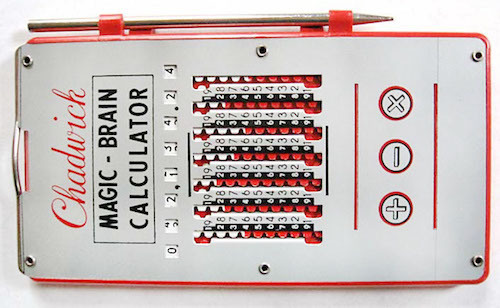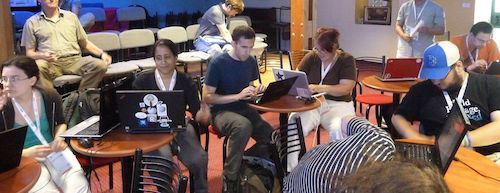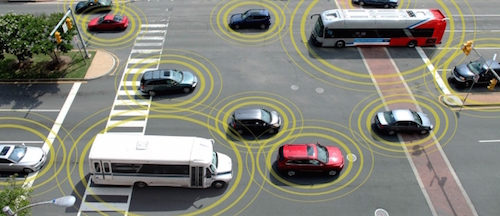Nicholas Carr's Blog, page 23
March 8, 2015
Our algorithms, ourselves
An earlier version of thisessay appeared last year, under the headline “The Manipulators,” in the Los Angeles Review of Books.
Since the launchof Netscape and Yahoo twentyyears ago, the storyof the internet has been oneof new companies and new products, a story shaped largely by the interests of entrepreneurs and venture capitalists. The plot has been linear; the pace, relentless. In 1995 came Amazon and Craigslist; in 1997, Google and Netflix; in 1999, Napster and Blogger; in 2001, iTunes; in...
March 6, 2015
Varieties of friendship
I contributed to the latest New York Times “Room for Debate” discussion, which posed this question: “Can real relationships be forged between people who never meet? Do online-only friendships count?” Here’s my reply, slightly expanded from what appeared in the Times:
“No kinds of love,” sang Lou Reed in his Velvet Underground days, “are better than others.” There’s wisdom as well as kindness in that line. Only the mean of spirit would seek to redline certain varieties of love or friendship — t...
March 3, 2015
Guided by satellites
I will be in Cambridge, Mass., this afternoon to give a talk entitled “The World Is Not the Screen: How Computers Shape Our Sense of Place.” It is part of the ongoing Navigation Lecture Series presentedby Harvard’sRadcliffe Institutefor Advanced Study. The talk starts at five, and is free and open to the public. So if you’re in the neighborhood, please come by. Details are here.
February 24, 2015
Just press send
We’ve been getting alittle lesson in what human-factors experts call “automation complacency” over the last couple ofdays. Google apparently made some change to the autosuggest algorithmin Gmail over the weekend, andthe program started inserting unusualemail addressesinto the“To”field of messages. As Business Insiderexplained, “Instead of auto-completing to the most-used contact when people start typing a name into the ‘To’ field, it seems to be prioritizing contacts that they communicate wit...
February 23, 2015
Brains, real and metaphorical
A few highlights from Lee Gomes’slong, lucidinterview with Facebook’s artificial-intelligence chief Yann LeCun in IEEE Spectrum:
Gomes: We read about Deep Learning in the news a lot these days. What’s your least favorite definition of the term that you see in these stories?
LeCun:My least favorite description is, “It works just like the brain.” I don’t like people saying this because, while Deep Learning gets an inspiration from biology, it’s very, very far from what the brain actually does. An...
February 22, 2015
Peak code?
“Will human replacement —the production by ourselves of ever better substitutes for ourselves —deliver an economic utopia with smart machines satisfying our every material need? Or will our self-induced redundancy leave us earning too little to purchase the products our smart machines can make?” In an attempt to answer those questions, three Boston University economists,Seth Benzell, Laurence Kotlikoff, and Guillermo LaGarda, together with Columbia’sJeffrey Sachs, turned to — what else? — a c...
@Gilligan #Franzen #Facebook #TV
From Susan Lerner’s interview with Jonathan Franzen in Booth:
SL:I want to ask you about technology and social media. …I was wondering, given your change of heart about television and its place within our culture, can you comment on this conversion and the possibility that social media might also one day redeem itself?
JF:TV redeemed itself by becoming more like the novel, which is to say: interested in sustained, morally complex narrative that is compelling and enjoyable. How that happens with...
February 20, 2015
Where will driverless cars drive us?
I have anarticle in Fortune that looks at the hype surrounding autonomous cars. Here’s a bit from the piecehighlightingrecent research that calls into question some of the commonassumptionsabout robotic vehicles:
At a car conference last September,StevenShladover, a research engineer at the University of California at Berkeley,explainedthat automotive automation presents far more daunting challenges than aircraft automation. Cars travel much closer together than planes do, they have less room...
February 9, 2015
The medium is the moral
In 1870, W. A. Rogers, a British bureaucratin the Bombay Civil Service, wrote of the fortifying effect that modern transport systems werehaving on the character of the localpopulace:
Railways are opening the eyes of the people who are within reach of themin a variety of ways.They teach them that time is worth money, and induce them to economise that which they had been in the habit of slighting and wasting; they teach them that speed attained is time, and therefore money, saved or made. . . ....
The medium is the morality
In 1870, W. A. Rogers, a British bureaucratin the Bombay Civil Service, wrote of the fortifying effect that modern transport systems werehaving on the character of the localpopulace:
Railways are opening the eyes of the people who are within reach of themin a variety of ways.They teach them that time is worth money, and induce them to economise that which they had been in the habit of slighting and wasting; they teach them that speed attained is time, and therefore money, saved or made. . . ....

